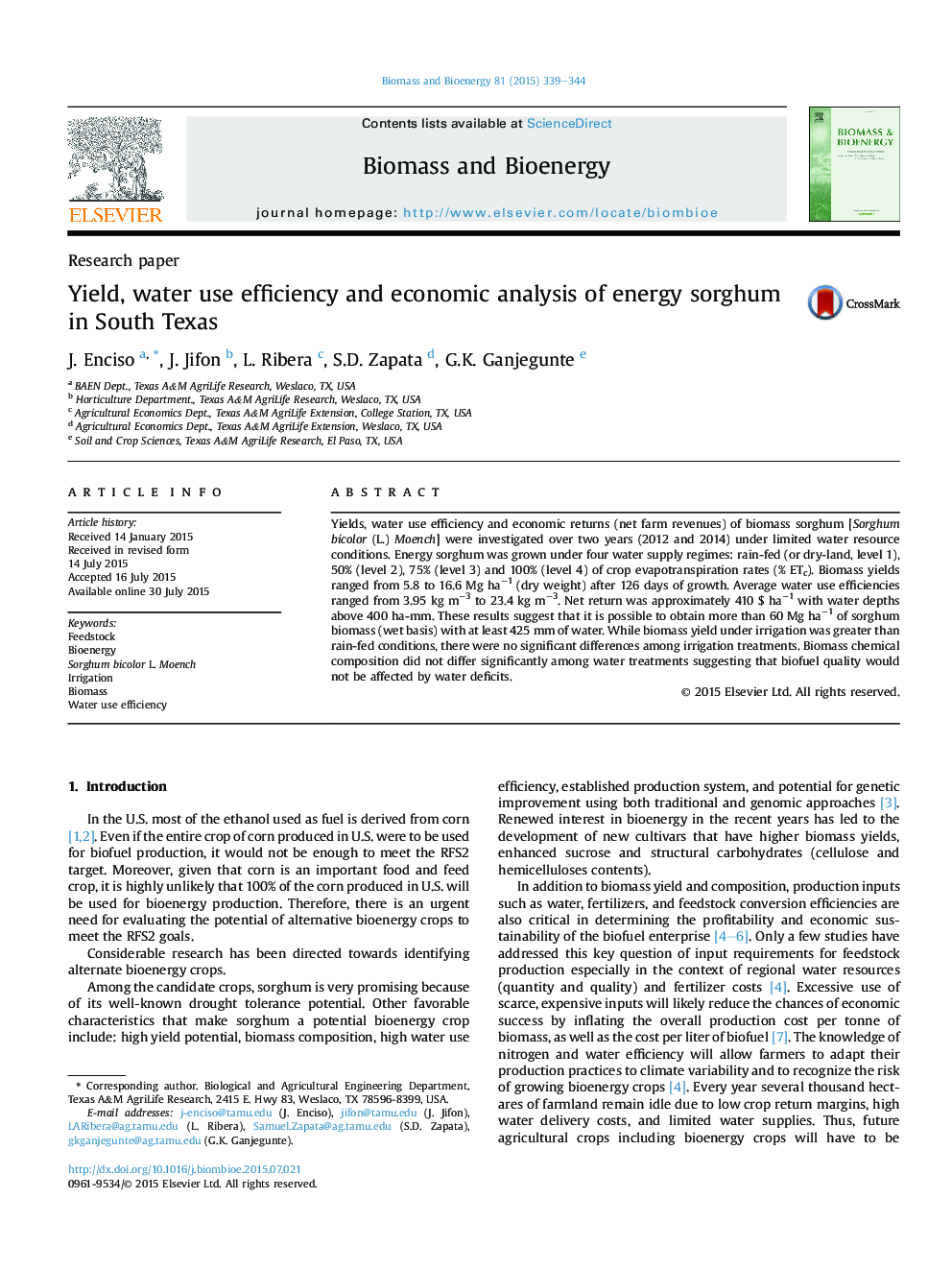| Article ID | Journal | Published Year | Pages | File Type |
|---|---|---|---|---|
| 7063819 | Biomass and Bioenergy | 2015 | 6 Pages |
Abstract
Yields, water use efficiency and economic returns (net farm revenues) of biomass sorghum [Sorghum bicolor (L.) Moench] were investigated over two years (2012 and 2014) under limited water resource conditions. Energy sorghum was grown under four water supply regimes: rain-fed (or dry-land, level 1), 50% (level 2), 75% (level 3) and 100% (level 4) of crop evapotranspiration rates (% ETc). Biomass yields ranged from 5.8 to 16.6 Mg haâ1 (dry weight) after 126 days of growth. Average water use efficiencies ranged from 3.95 kg mâ3 to 23.4 kg mâ3. Net return was approximately 410 $ haâ1 with water depths above 400 ha-mm. These results suggest that it is possible to obtain more than 60 Mg haâ1 of sorghum biomass (wet basis) with at least 425 mm of water. While biomass yield under irrigation was greater than rain-fed conditions, there were no significant differences among irrigation treatments. Biomass chemical composition did not differ significantly among water treatments suggesting that biofuel quality would not be affected by water deficits.
Related Topics
Physical Sciences and Engineering
Chemical Engineering
Process Chemistry and Technology
Authors
J. Enciso, J. Jifon, L. Ribera, S.D. Zapata, G.K. Ganjegunte,
